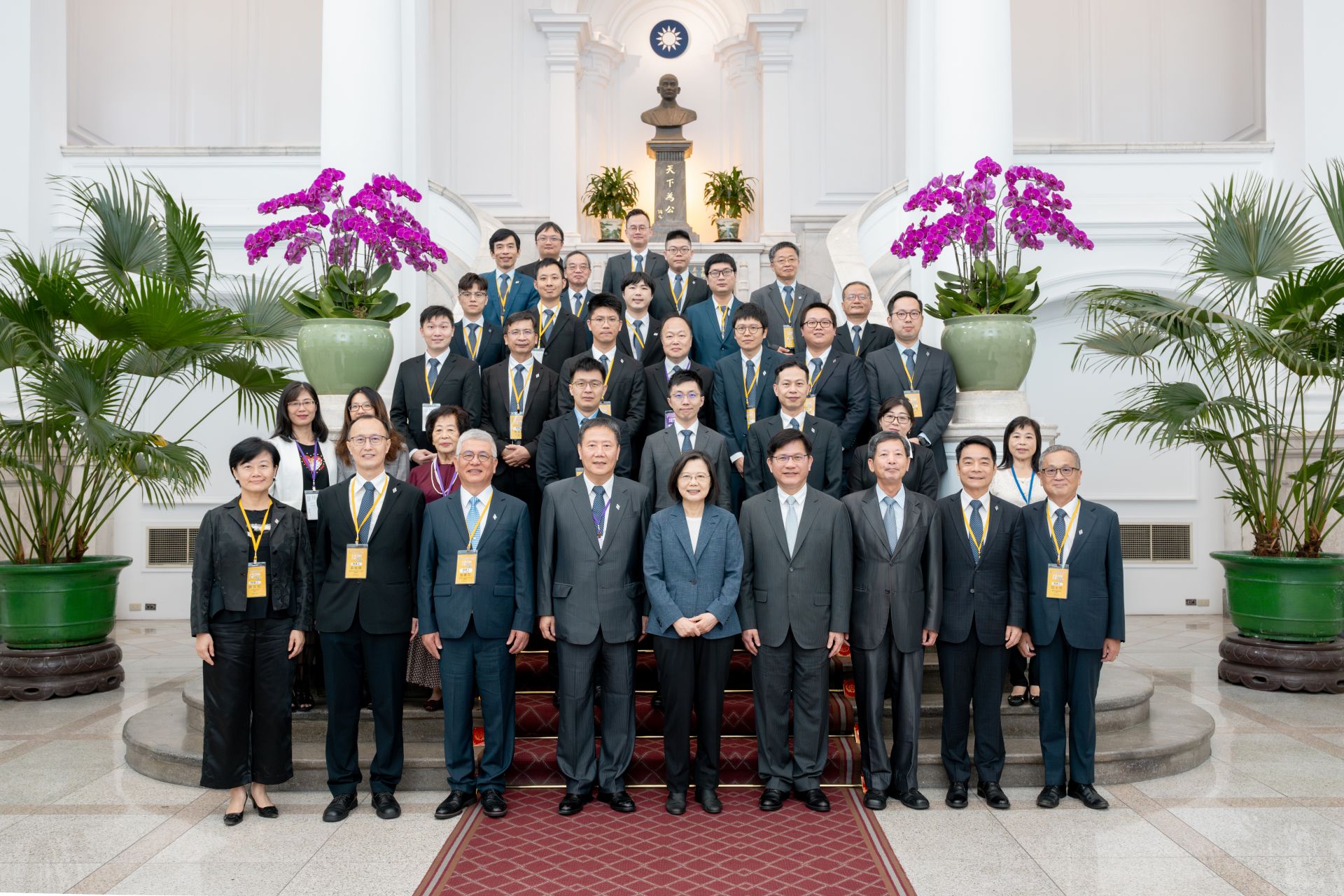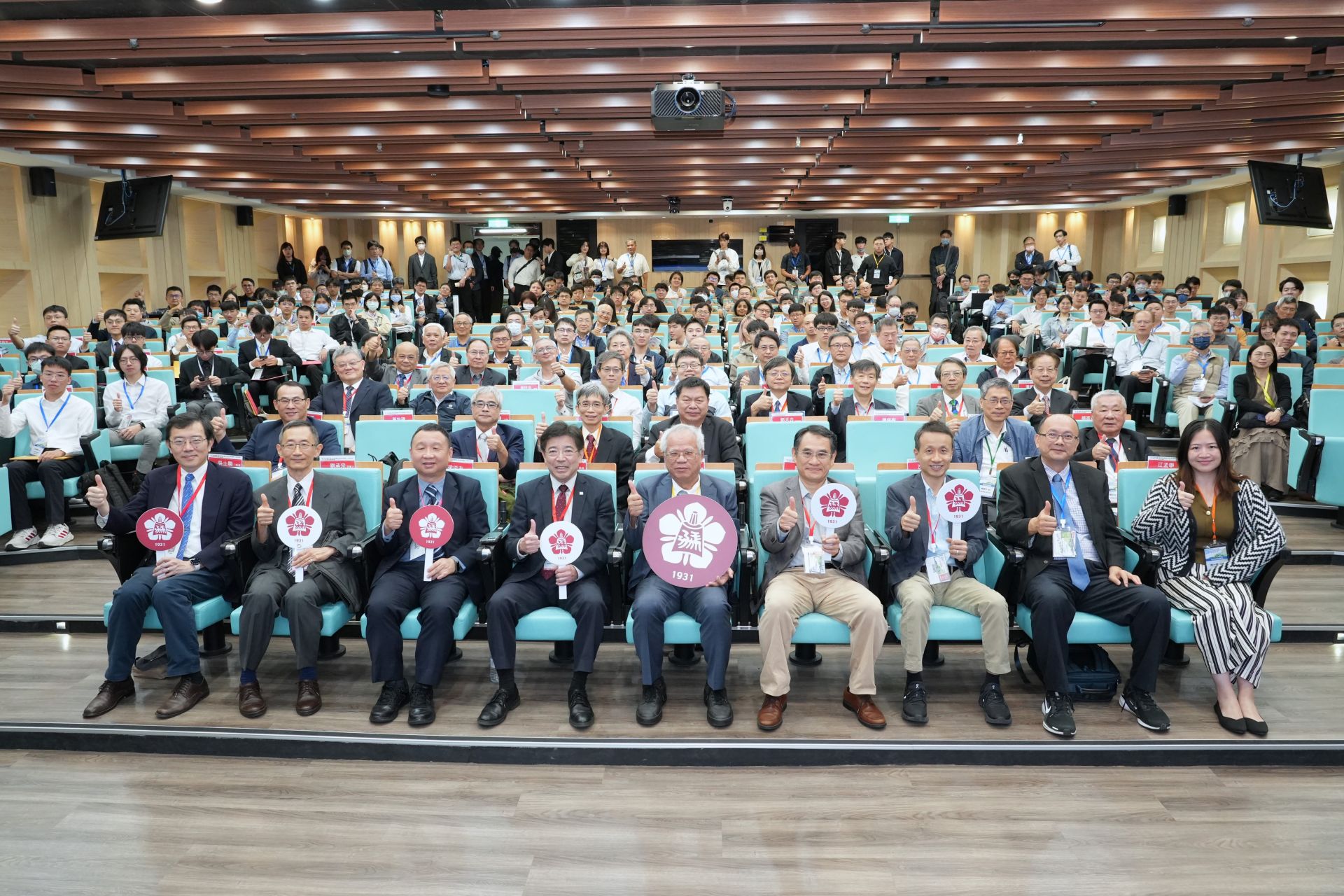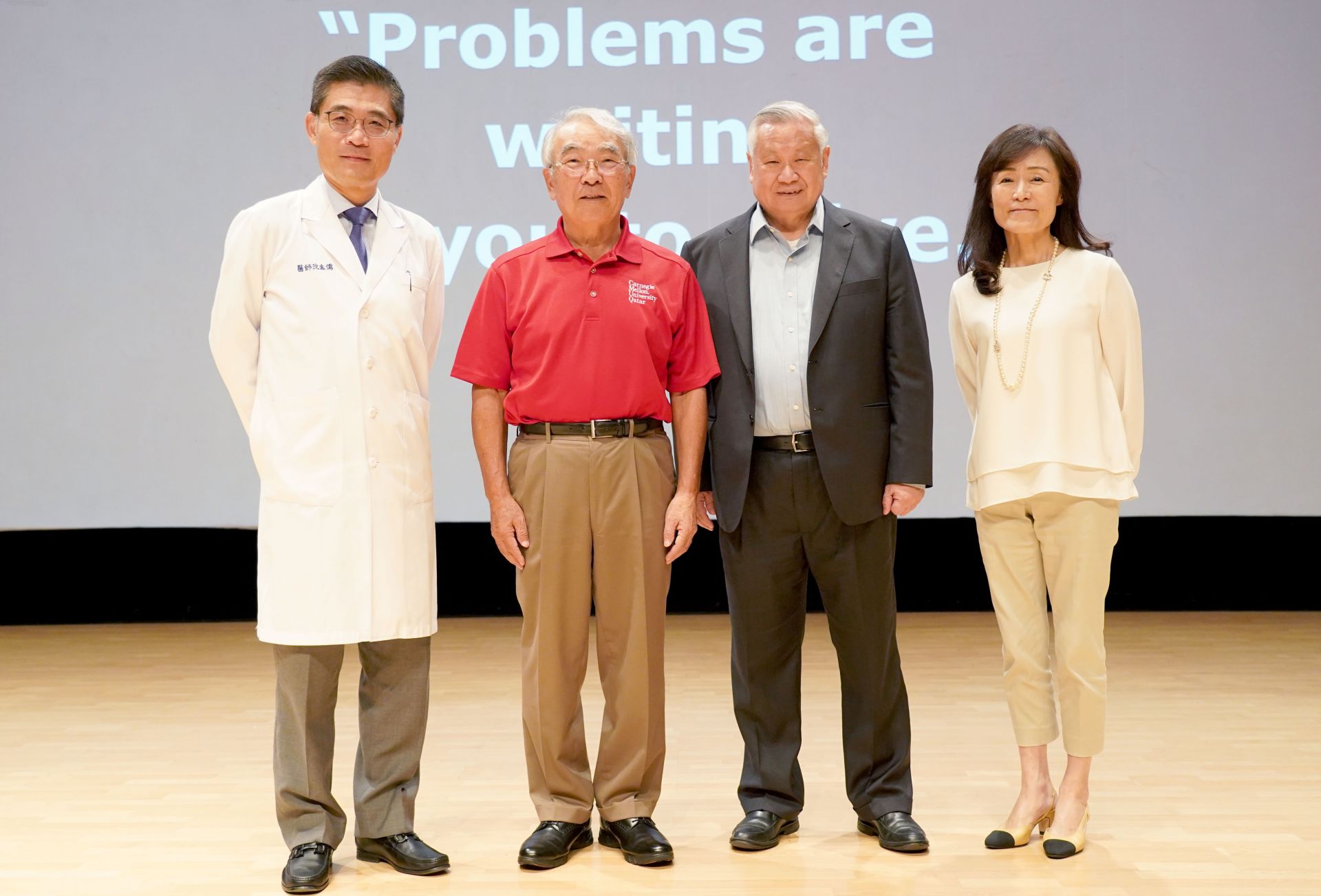SDG9
The 2025 Mind Science Achievement Conference of the National Science and Technology Council (NSTC) was held at NCKU
The triennial gathering in brain imaging research, the “2025 NSTC Mind Science Brain Imaging Research Project Achievement Conference”, was recently held at National Cheng Kung University (NCKU), attracting nearly a hundred scholars and students from universities and research institutes across Taiwan. The event not only reviewed recent research achievements but also sought to foster face-to-face exchanges, promote integration of Taiwan’s brain imaging databases, and encourage cross-disciplinary collaboration, enhancing the nation’s visibility in the international brain science research community.
The conference took place on October 19 at the North Building of NCKU’s College of Social Sciences. Held every three years, the event rotates among the brain imaging research centers of NCKU, National Taiwan University (NTU), and National Chengchi University (NCCU). After nine years, NCKU’s Center for Mind and Brain Imaging hosted the conference again. The center also co-organized the 64th Annual Conference of the Taiwanese Psychological Association on October 18–19, creating synergy and expanding academic exchange in mind science and brain imaging research.
The conference opened with the “Three Centers Luncheon Meeting,” gathering key representatives: Yu-Ling Chang (張玉玲), Director of NTU’s Center for Integrative Mind-Body and Cultural Imaging; Chih-Hung Chen (陳志宏), Deputy Director of the same center; Ting-Ting Chang (張亭亭), Executive Director of NCCU’s Taiwan Mind Science Brain Imaging Center; and Fu-Jen Hsiao (蕭富仁), Director of NCKU’s Center for Mind and Brain Imaging. Participants discussed future directions, collaborative models, and the construction of brain imaging databases, aiming to integrate research resources and strengthen cross-university cooperation for sustainable brain imaging research development in Taiwan.
The main conference began in the afternoon with opening remarks by Chun-Li Tsai (蔡群立), Dean of NCKU’s College of Social Sciences, encouraging scholars to continue advancing interdisciplinary research in mind science and brain imaging. The session was then formally opened by Chun-Chia Kung (龔俊嘉) and Te-Yu Chen (陳德祐), co-chairs of NCKU’s Center for Mind and Brain Imaging, who introduced the conference agenda.
Fu-Jen Hsiao (蕭富仁), Director of NCKU’s Center for Mind and Brain Imaging, delivered the keynote speech, highlighting recent achievements in cognitive processes, clinical applications, and neural mechanism research. He also shared updates on research techniques, data analysis, and cross-disciplinary collaboration.
Following the keynote, representatives from the three centers gave thematic presentations: Shen-Mou Hsu (徐慎謀) from NTU explored the influence of respiratory rhythms on brain activity and visual perception; Hui-Juan Chang (張惠娟), Assistant Professor at NCCU, used cross-subject fMRI and neural network modeling to reveal hierarchical temporal processing of the brain under natural input; and Lo-Szu Wang (王樂斯) from NCKU presented findings on brain synchrony during social interaction, cooperation, and competition, discussing its implications for health. Presentations covered advanced techniques including fMRI, MEG, hyperscanning, and real-time neurofeedback, combining foundational and applied research, reflecting the depth and breadth of Taiwan’s brain imaging and mind science studies.
A mid-session tea break allowed scholars and students to exchange research insights and collaboration ideas. Representatives from National Yang Ming Chiao Tung University also attended to learn about the operations and collaboration models of the three centers, aiming to foster closer research ties and promote the sharing of high-field MRI technology and resources within Taiwan.
The directors of the three centers jointly emphasized that the conference’s purpose extended beyond reviewing achievements; it sought to consolidate a shared vision through direct exchanges, promote database integration, and encourage cross-disciplinary collaboration to strengthen Taiwan’s global presence in brain science research. The event concluded with the presentation of certificates of appreciation by the Dean of NCKU’s College of Social Sciences, acknowledging the contributions of participating scholars and center representatives.
The conference took place on October 19 at the North Building of NCKU’s College of Social Sciences. Held every three years, the event rotates among the brain imaging research centers of NCKU, National Taiwan University (NTU), and National Chengchi University (NCCU). After nine years, NCKU’s Center for Mind and Brain Imaging hosted the conference again. The center also co-organized the 64th Annual Conference of the Taiwanese Psychological Association on October 18–19, creating synergy and expanding academic exchange in mind science and brain imaging research.
The conference opened with the “Three Centers Luncheon Meeting,” gathering key representatives: Yu-Ling Chang (張玉玲), Director of NTU’s Center for Integrative Mind-Body and Cultural Imaging; Chih-Hung Chen (陳志宏), Deputy Director of the same center; Ting-Ting Chang (張亭亭), Executive Director of NCCU’s Taiwan Mind Science Brain Imaging Center; and Fu-Jen Hsiao (蕭富仁), Director of NCKU’s Center for Mind and Brain Imaging. Participants discussed future directions, collaborative models, and the construction of brain imaging databases, aiming to integrate research resources and strengthen cross-university cooperation for sustainable brain imaging research development in Taiwan.
The main conference began in the afternoon with opening remarks by Chun-Li Tsai (蔡群立), Dean of NCKU’s College of Social Sciences, encouraging scholars to continue advancing interdisciplinary research in mind science and brain imaging. The session was then formally opened by Chun-Chia Kung (龔俊嘉) and Te-Yu Chen (陳德祐), co-chairs of NCKU’s Center for Mind and Brain Imaging, who introduced the conference agenda.
Fu-Jen Hsiao (蕭富仁), Director of NCKU’s Center for Mind and Brain Imaging, delivered the keynote speech, highlighting recent achievements in cognitive processes, clinical applications, and neural mechanism research. He also shared updates on research techniques, data analysis, and cross-disciplinary collaboration.
Following the keynote, representatives from the three centers gave thematic presentations: Shen-Mou Hsu (徐慎謀) from NTU explored the influence of respiratory rhythms on brain activity and visual perception; Hui-Juan Chang (張惠娟), Assistant Professor at NCCU, used cross-subject fMRI and neural network modeling to reveal hierarchical temporal processing of the brain under natural input; and Lo-Szu Wang (王樂斯) from NCKU presented findings on brain synchrony during social interaction, cooperation, and competition, discussing its implications for health. Presentations covered advanced techniques including fMRI, MEG, hyperscanning, and real-time neurofeedback, combining foundational and applied research, reflecting the depth and breadth of Taiwan’s brain imaging and mind science studies.
A mid-session tea break allowed scholars and students to exchange research insights and collaboration ideas. Representatives from National Yang Ming Chiao Tung University also attended to learn about the operations and collaboration models of the three centers, aiming to foster closer research ties and promote the sharing of high-field MRI technology and resources within Taiwan.
The directors of the three centers jointly emphasized that the conference’s purpose extended beyond reviewing achievements; it sought to consolidate a shared vision through direct exchanges, promote database integration, and encourage cross-disciplinary collaboration to strengthen Taiwan’s global presence in brain science research. The event concluded with the presentation of certificates of appreciation by the Dean of NCKU’s College of Social Sciences, acknowledging the contributions of participating scholars and center representatives.

Group photo of the participants

Opening remarks by Chun-Li Tsai, Dean of the College of Social Sciences

Achievement Conference






















